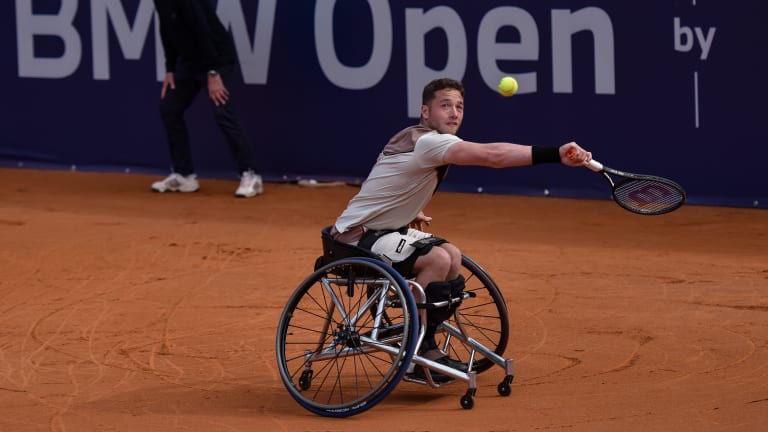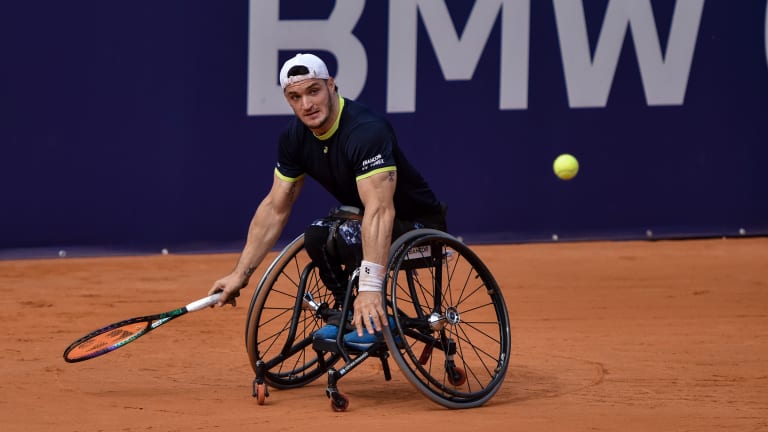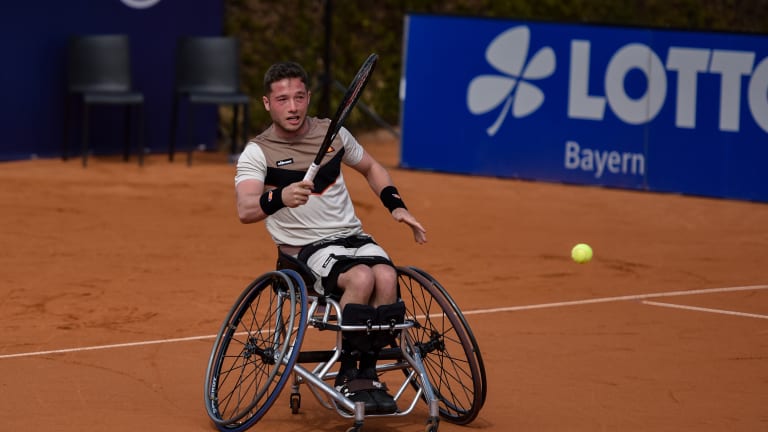MUNICH—Walking around the grounds of the BMW Open, one can’t help but smile when taking in the operation for the first time. The branding may scream it’s an ATP 250, but you wouldn’t know it otherwise—for starters, stadium court is packed.
Luxury cars provided by Munich’s title sponsor line one pathway, where opportunities await to sit behind the wheel and learn more about each model’s offerings. Fans can grab lunch in an international-inspired food court and park in a common area full of tables, or stroll to an outside court and watch the likes of rising talent Holger Rune practice before his match. Among the setup, there are multiple sit-down restaurants—yes, schnitzel is on the menu—a mobile coffee bar and a VIP dining and seating experience for those looking to level up their extravagance beyond the gas pedal.
But perhaps what stood out the most was the inclusion of another discipline: For the first time, the long-standing men’s tour stop hosted wheelchair tennis. Multiple Grand Slam champions Alfie Hewett and Gustavo Fernandez provided all the credibility one could want for a two-day exhibition and it begs the question: if tennis wanted to take its united concept to another dimension, could more ATP and WTA events sync their calendars with ITF-sanctioned wheelchair tournaments to naturally provide these athletes greater exposure?
“I think there are only one or two other events in our calendar where we integrated with ATP or WTA: Rotterdam and Queens. And I think there's now one in Eastbourne as well. So there's very few events that we get to be hosted in such great facilities,” Hewett said in a press conference Friday.
“I think we're extremely fortunate to be integrated in the Grand Slams. It's not something that I take granted.”


